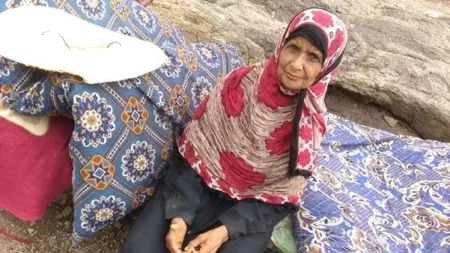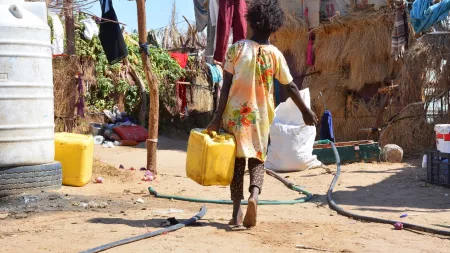Tomorrow the people of Yemen will enter their eighth year of living in a country in active conflict. Over the period of 2,555 days and nights, Yemenis have been experiencing a deteriorating economic hardship and loss of income, displacement and a daily struggle to meet their most basic needs. By the end of the year, up to 19 million Yemenis will experience acute malnutrition, including 2.2 million children under five. While the conflict affects all the people of Yemen, women and girls continue to be disproportionately affected.
The repercussions of the current global food crisis emanating from the conflict in Ukraine - one of the main suppliers for Yemen - will mean less wheat and oil entering the country and at higher prices, worsening an already alarming scenario.
The UN’s Humanitarian Response Plan for 2022 shows that the number of people in need of humanitarian aid just keeps increasing - now three out of every four people. Yet, the annual pledging conference held on 16 March clearly indicated diminishing donor support. Total pledges at $1.3 billion will barely meet 30 percent of the required $4.2 billion.
"Since the conflict started in 2015, every single day we think this could be the worst yet. And yet we keep realising we’re wrong, it gets worse by the day. Completing seven full years of war and entering the eighth is very difficult to fathom. I keep trying to live with the hope that every single day life will get better, and our situation will improve. The disappointment I feel today is devastating and the prospect of worse to come is even harder," says Bushra Aldukhainah, CARE Area Manager, Hajjah Governorate, Yemen
"Seven years of war seems to have stolen the best years of our lives and our aspirations for the future. Our dominating feeling every day is fear and destruction. That’s all we see around us. Yemen is known as a poor country and has low living standards. Yet, before the conflict, people were living their lives with dignity, making by with whatever low salary they got, being self-reliant. However, now this basic right of standing on your own feet has been taken from them," says Suha Basharen, Gender Specialist, CARE Yemen
Story from the communities we serve
Zainab, 50 years old, is a widowed mother of four sons - two of whom suffer mental illness. She lives in Al Wazi'iyah district, one of the poorest regions in Taiz governorate. "I wish the conflict could end because Yemenis have suffered enough," she says. "They can no longer endure this situation. Food prices skyrocket way beyond our coping capacity. People have no more savings left, nor possessions to buy food. I was supposed to rest at this age, yet I work hard so I can buy minimum food for my children at the hugely inflated prices," she says.

CARE in Yemen: CARE International has been present in Yemen since 1992 and operates across 14 governorates, reaching 2.8 million people a year with food security and livelihoods, water, sanitation and hygiene (WASH), reproductive health, women’s economic empowerment and education programs.
For more information visit www.careyemen.org
Media Contact: Shahrzad Amoli, Advocacy and Communications Coordinator, CARE Yemen, [email protected]
